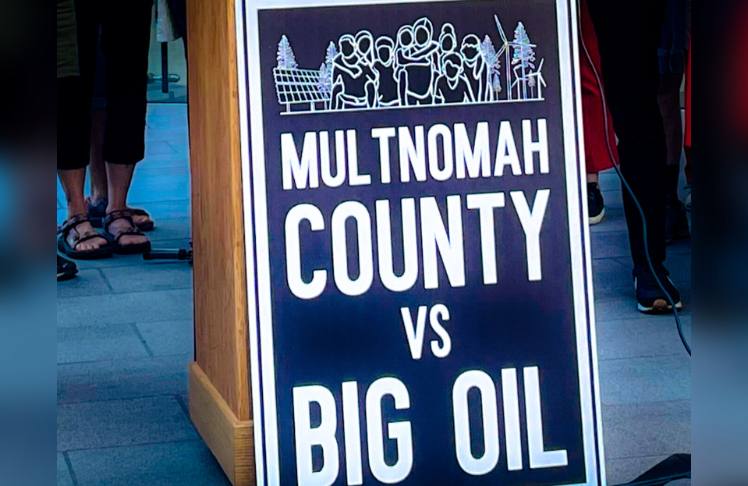
Multnomah County has taken the gloves off and filed a lawsuit against defendants Exxon Mobil, Shell, Chevron, and the Western States Petroleum Association alleging they caused the deadly and costly 2021 heat wave in the Northwest. The lawsuit has 17 defendants in all. The county is stating that the heat dome was “a direct and foreseeable consequence” of oil companies’ actions.
The suit from Multnomah County has made national news. The county includes Portland and its suburbs which was effected by the heat dome which experts say was not a natural event. It, however, was “a direct and foreseeable consequence” of oil companies’ actions to sell as many fossil fuel products as possible for decades and to “lie” about the harms of those products states the lawsuit.
Many experienced tragedy as sixty-nine people died because of the soaring heat across the Pacific Northwest for several weeks. Temperatures in Multnomah County reached highs of 108, 112, and 116 degrees. The city began looking at ways to keep residents cool that may be vulnerable.
This is the first claim that is tied to the 2021 heat dome. The heat that was suffered dod not have to be according to the lawsuit. The June 2021 heat wave was “virtually impossible” if not for the impacts of climate change, according to climate experts. Experts put for a study that found that the heat event was at least 150 times less likely if global temperatures had not warmed so much due to human activity.
The suit is hitting big fossil fuel companies for a huge payday. Multnomah County is seeking $1.5 billion in future damages, $50 million in damages, and a $50 billion abatement fund — to “weatherize” the county and plan for future harms as a result of global warming that results from fossil fuel use. The lawsuit says the record heat wave required emergency care for hundreds of people, provoked an uptick in crime and required the county to spend “taxpayer money to provide people with shelter, cooling centers, fans, food, portable air conditioners, clothes, and water.”















